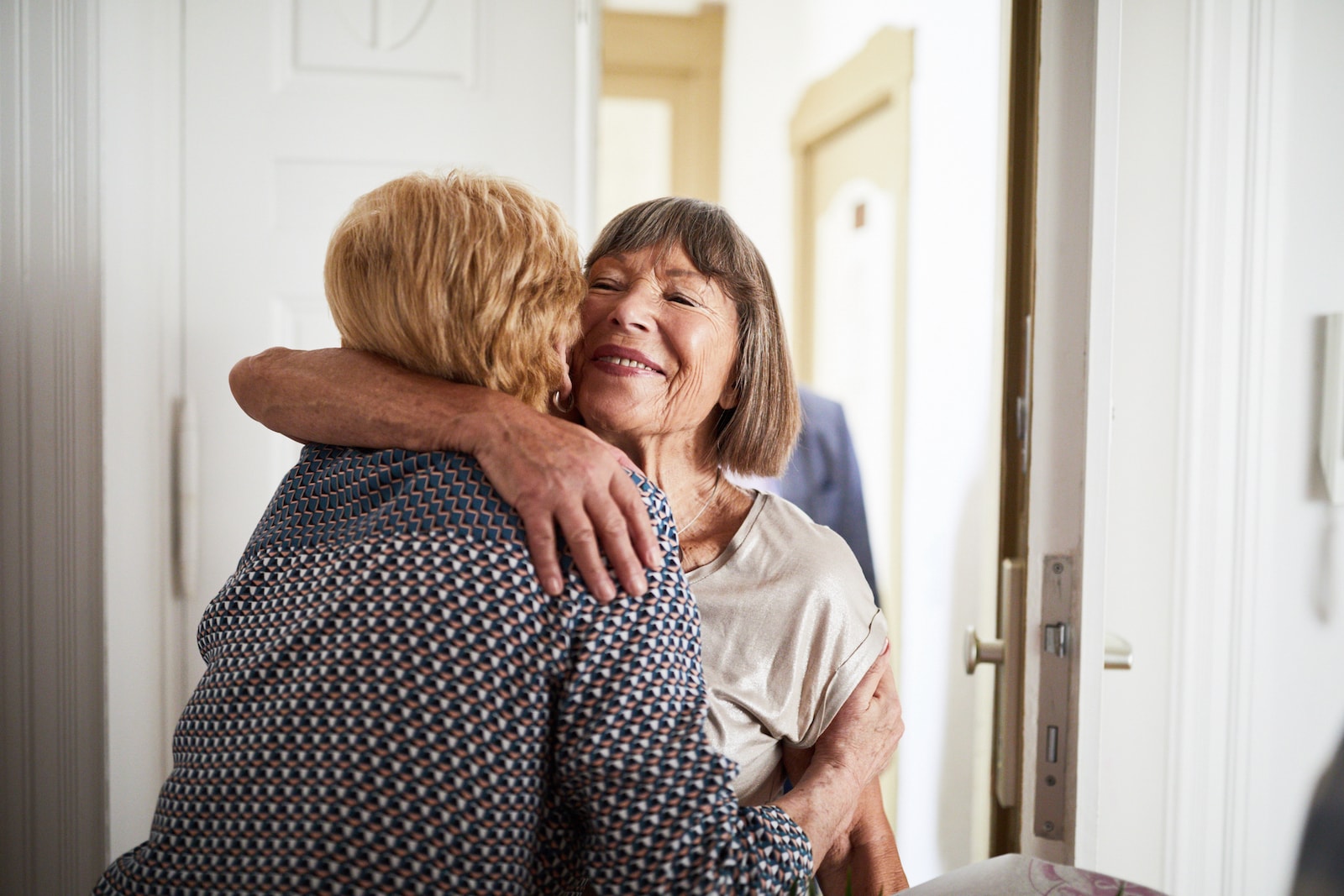From weakening bones to memory challenges, aging brings many natural physical changes that can cause health issues if left unattended. Now, researchers are finding evidence that a lack of social interaction can have a serious impact on overall health – especially for women.
In a new study published in JAMA Network Open, isolation and loneliness were found to increase the risk of cardiovascular disease among postmenopausal women by as much as 27% when experienced at high levels together. And as the pandemic continues to limit social interactions — especially for seniors — study researchers are calling for action.
“Social isolation and loneliness are growing public health concerns as they are associated with health conditions that increase the risk of cardiovascular disease including obesity, smoking, physical inactivity, poor diet, high blood pressure and high cholesterol,” explains study author Natalie M. Golaszewski, who holds her doctorate in health behavior and health education and is a postdoctoral fellow at Herbert Wertheim School of Public Health and Human Longevity Science at UC San Diego.
Here are all the details and how experts say you can help protect your loved one or client.
“Social isolation and loneliness are growing public health concerns.”
— NATALIE M. GOLASZEWSKI, STUDY AUTHOR AND POSTDOCTORAL FELLOW AT UC SAN DIEGO
What the research showed
To find out if these psychosocial factors could affect physical health, researchers assessed a cohort of 57,825 community-living women between the ages of 65 to 99 over an eight-year span.
“We statistically examined the independent associations between social isolation, loneliness and cardiovascular disease, adjusting for depression, health behaviors and health outcomes,” explains Golaszewski. After those adjustments, here’s what they found.
Postmenopausal women have:
- A 8% higher risk of cardiovascular disease when living in social isolation.
- A 5% higher risk of cardiovascular disease when living with loneliness.
- If women experienced high levels of both, their risk rose 13% to 27% compared to women who reported low levels of social isolation and low levels of loneliness.
“Social isolation and loneliness, while mildly related to one another, are distinct social factors,” says Golaszewski. “A socially isolated person is not always lonely, and conversely, a person feeling lonely is not necessarily socially isolated. Our study showed that both factors are associated with increased risk for cardiovascular disease among older women.”
The study also included women who were more connected to their communities and family. Researchers hypothesized that this additional support would correlate with a lower risk of heart disease, but social support wasn’t enough to mitigate the increased risk of cardiovascular disease.
Experts were not so surprised by these findings, especially in light of the pandemic.
“In general, our emotional and mental health is closely bound to our physical health,” says Dr. Sarah Elsayed, a board-certified interventional cardiologist at MemorialCare Heart and Vascular Institute at Orange Coast Medical Center in Fountain Valley, California. “The COVID-19 pandemic for example, has shown us an increase in patients diagnosed with hypertension, palpitations and shortness of breath. This may be the effect of anxiety and depression, or actual cardiac complications.”
“Loneliness and social isolation can happen for any number of reasons and can often be an increased risk amongst older demographics due to living alone, the loss of family or friends and chronic illness.”
— DR. ANISHA PATEL-DUNN, CHIEF MEDICAL OFFICER AT LIFESTANCE HEALTH
Why women are most at risk
“Loneliness and social isolation can happen for any number of reasons and can often be an increased risk amongst older demographics due to reasons such as living alone, the loss of family or friends and chronic illness,” explains Dr. Anisha Patel-Dunn, Chief Medical Officer at LifeStance Health, a provider of virtual and in-person outpatient mental health care.
In fact, a fourth of adults over 65 report social isolation. However, research indicates that women are even more likely to experience loneliness or isolation compared to men, primarily due to longer life expectancy which leads to widowhood.
Elsayed notes that more often than men, women also tend to be caregivers and look to help others first, which is another reason they may struggle to address chronic stress that could contribute to heart disease risk.
The main takeaway for caregivers
The importance of social support cannot be emphasized enough, says Elsayed. In light of this research, experts urge caregivers to look for signs of possible stress due to social isolation and loneliness and ask their senior loved one about it. “Caring for emotional health is just as important as physical health,” she says.
She also suggests alternating care (for example, you might hire respite care) to avoid fatigue and burnout.
Patel-Dunn also encourages caregivers to be as present as possible during visits with loved ones to make time together meaningful. If possible, even when you’re making a quick visit, like dropping off groceries or a meal, consider carving out dedicated time to connect and catch up, she suggests. “Sometimes a small amount of effort can have the biggest impact and can provide a better window into a person’s emotional well-being,” notes Patel-Dunn.
If seniors already have cardiovascular disease or risk factors, you of course want to ensure that your loved one or client is keeping up with medications and physician appointments, adds Dr. Rigved Tadwalkar, a board-certified cardiologist at Providence Saint John’s Health Center in Santa Monica, California.
And watch out for any new symptoms — for example, new chest pain, shortness of breath or lethargy — says Tadwalkar.
Looking for more resources? Researchers recommend The National Institute on Aging which has a helpful Social Isolation and Loneliness Outreach Toolkit for caregivers.
More ways to prevent heart disease
Prioritizing physical activity in seniors continues to be a top recommendation from experts to support seniors’ heart health.
“My number one piece of advice is to continually encourage some form of activity, preferably in a group format,” says Tadwalkar. “It doesn’t have to be one specific activity, and in fact, a variety is likely to provide greater health benefits and be more enjoyable. This is helpful to not only combat loneliness and isolation but to also encourage regular physical activity, which is one of the foundations of treating cardiovascular disease.”
Here are a few expert-recommended group activities for seniors that can boast both physical and mental benefits:
- Golf
- Yoga
- Volunteering
- Walking with friends or neighbors
- Taking an exercise class in-person or via Zoom
Ultimately, the new research points to the importance of supporting a senior loved one or client’s social life.
As Golaszewski notes, “We monitor our patients’ blood pressure, weight and temperature. It might also be beneficial to capture the social needs that individuals may be lacking to better understand cardiovascular risk and develop solutions.”


